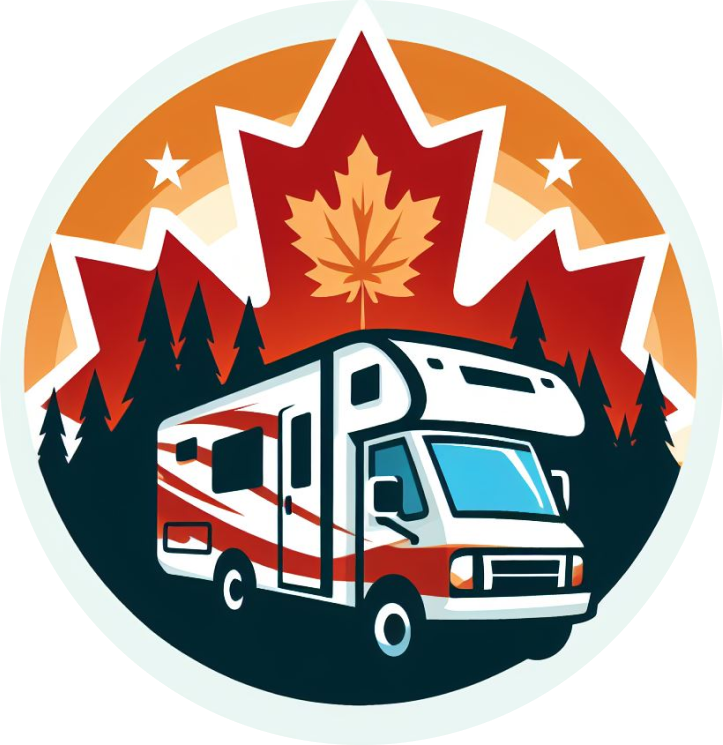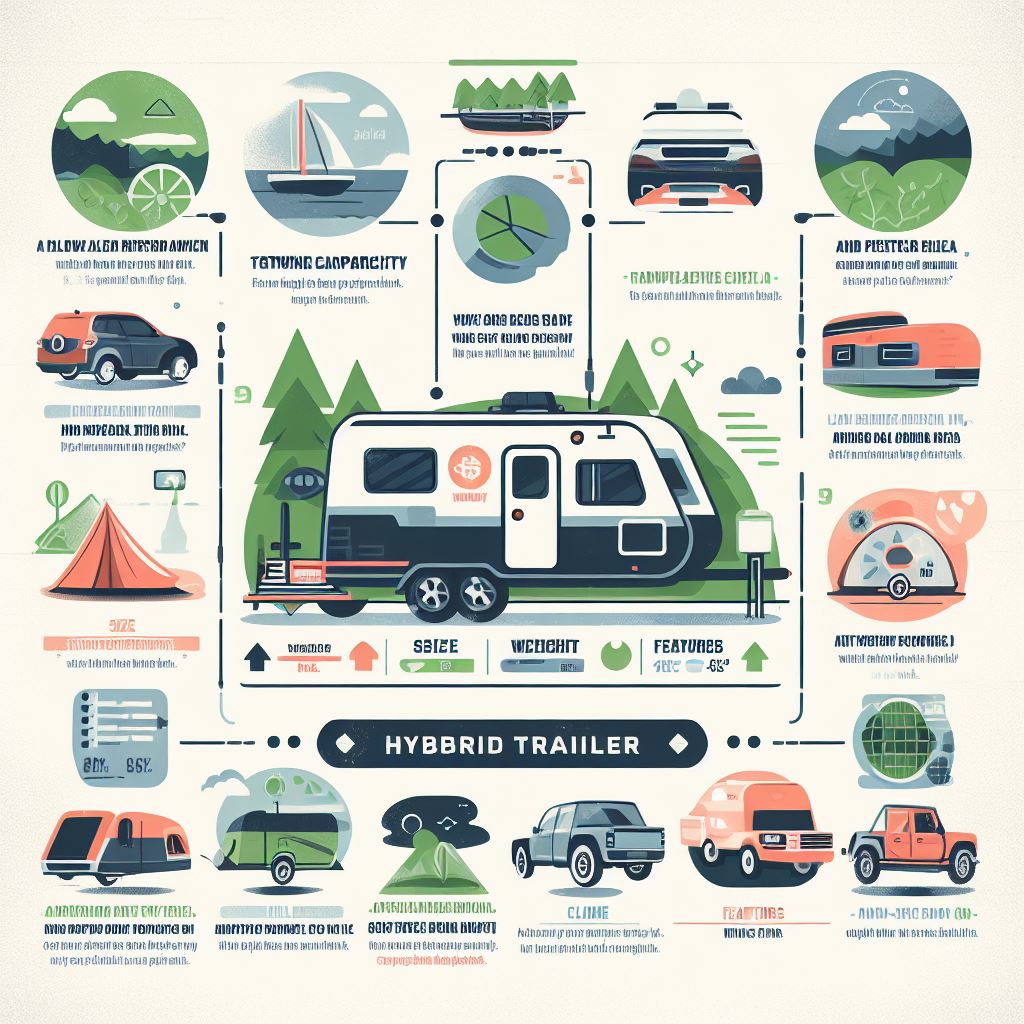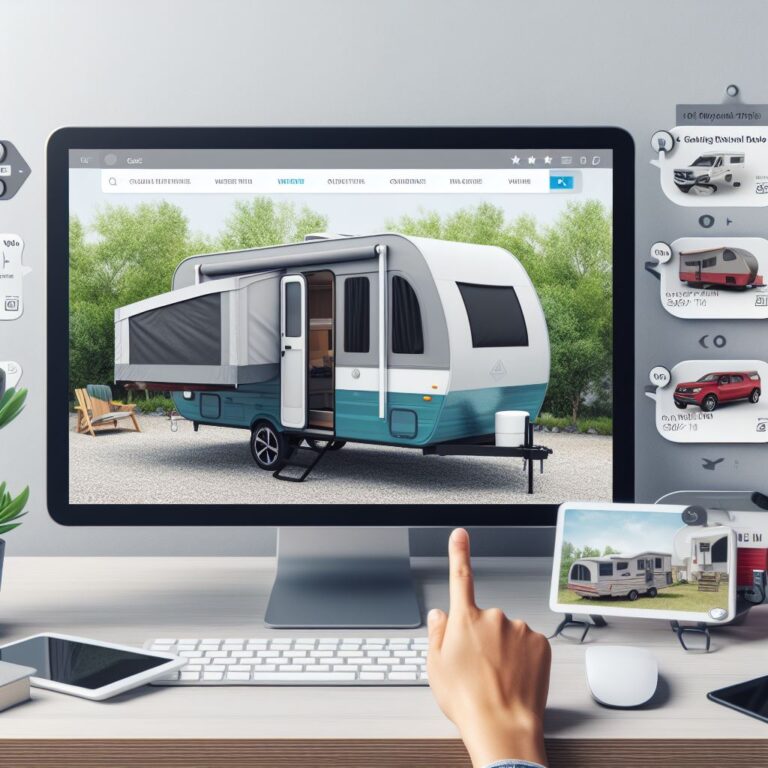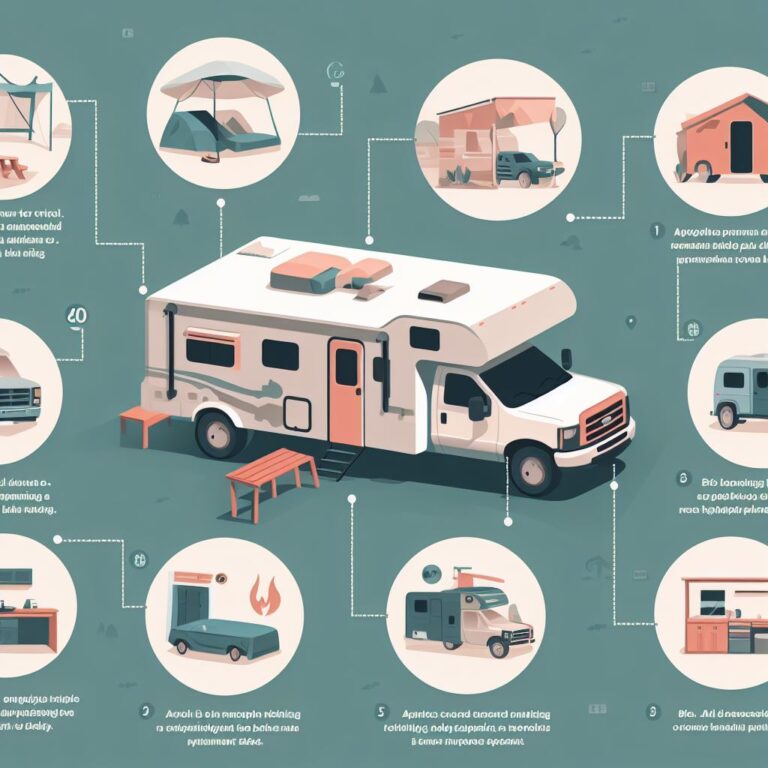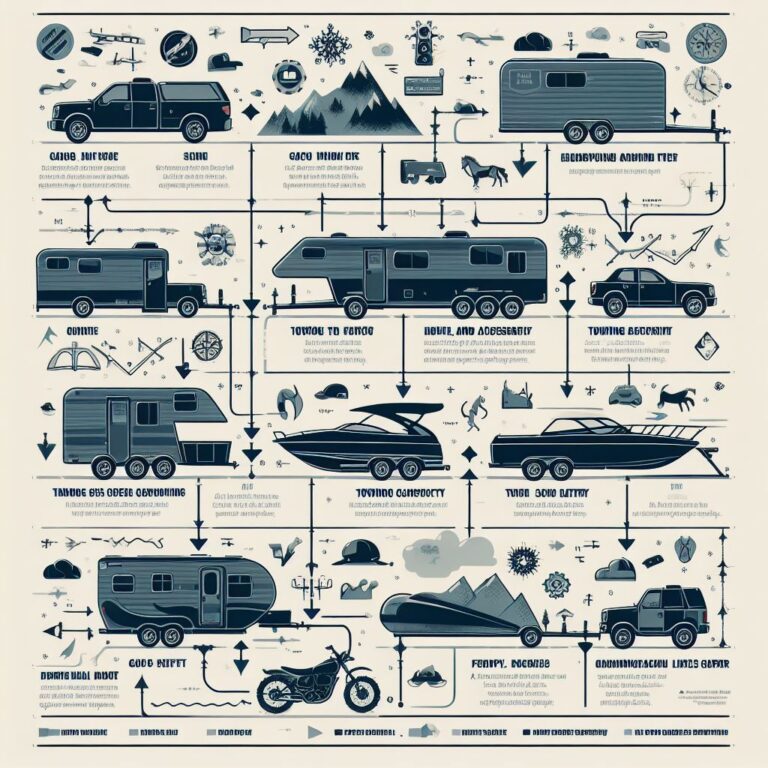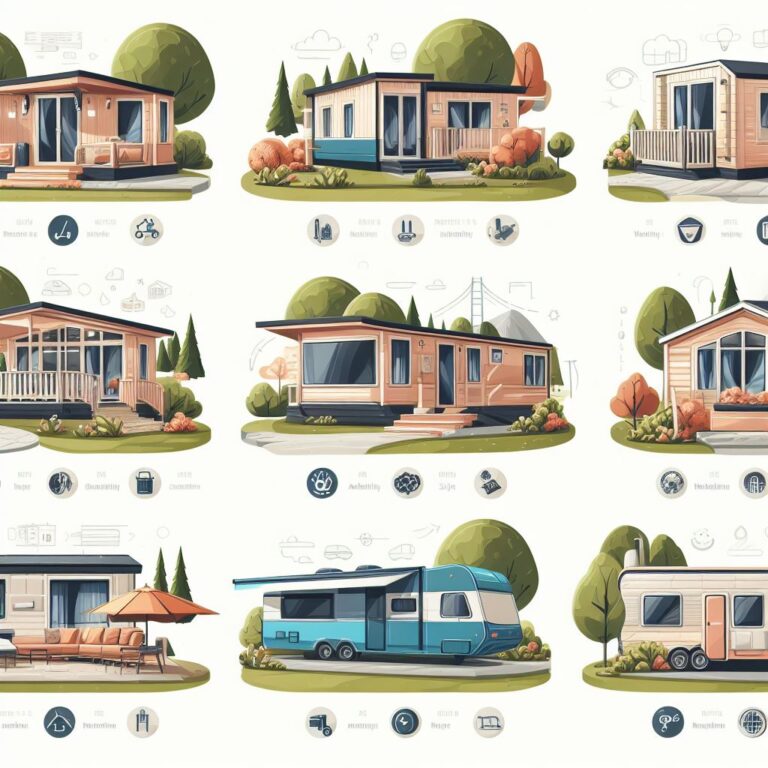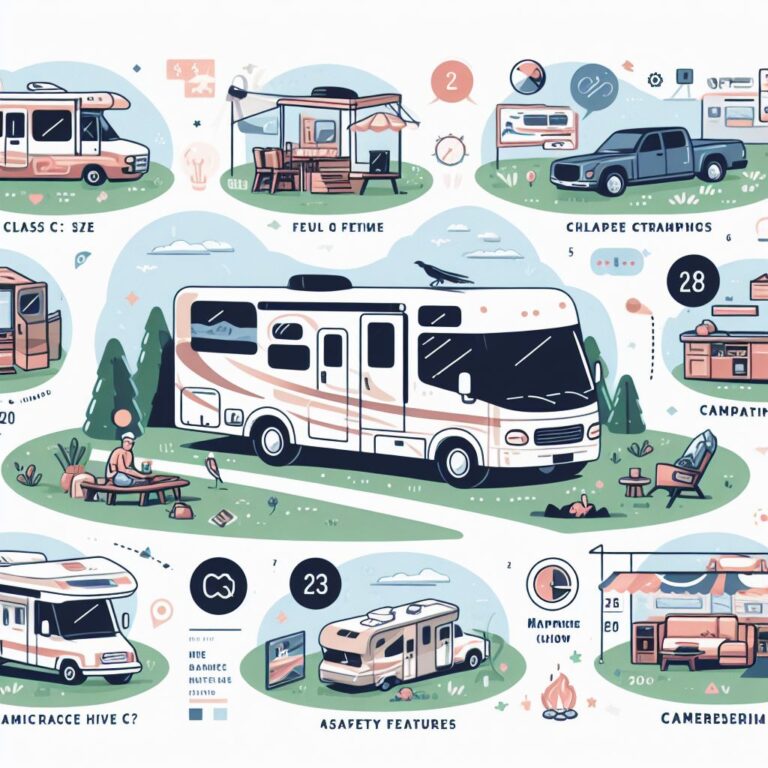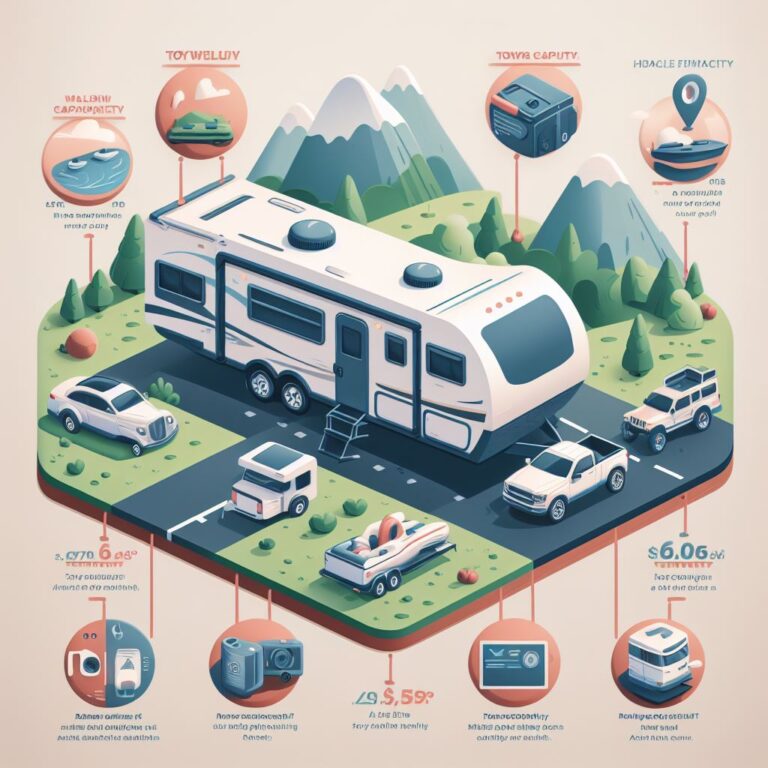How To Choose Travel Trailer $30,000 – $120,000 Sleeps up to 10 3.6 to10.7 M(12-35 FT)
Understanding Your Budget for a Mobile Vacation Home
Creating an effective budget for your mobile vacation home is an essential aspect that shouldn’t be taken lightly. It involves scrutinizing your financial situation and aligning your spending habits accordingly. It’s critical to measure the ratio of your income to your expenditure realistically. All while keeping in mind that life is unpredictable, and an emergency fund always comes in handy.
The process begins with identifying the maximum price you’re willing and able to pay for a mobile home. This figure should include not only the purchase price but also the costs of insurance, maintenance, parking, and other related expenses. Consideration should also be given to utility costs such as heat, electric, and water services. By developing an accurate and realistic budget, you will be better equipped to make an informed decision on the right mobile vacation home for you.
• Understanding your financial situation: The first step in creating a budget for your mobile vacation home is to thoroughly examine your current financial status. This includes assessing all sources of income, regular expenses, and any existing debts or obligations.
• Determining the maximum price: Once you have a clear picture of your finances, identify the maximum amount that you can afford to spend on a mobile vacation home. This should include not only the purchase price but also any additional costs related to owning and maintaining such a property.
• Considering ongoing expenses: In addition to the initial cost of purchasing a mobile vacation home, there are several ongoing expenses that must be factored into your budget. These may include:
◦ Insurance costs
◦ Maintenance fees
◦ Parking charges
◦ Utility bills (for heat, electricity and water services)
• Preparing for emergencies: Life is unpredictable – unexpected situations can arise at any time which could impact your finances significantly. To protect yourself from potential economic hardships down the line, it’s advisable to set aside an emergency fund as part of your overall budget planning process.
• Making informed decisions: By developing an accurate and realistic budget before making a purchase decision will enable you to choose wisely when selecting a suitable mobile vacation home that fits within said parameters.
In conclusion, understanding how much money you need -and where it’s going- allows for better control over personal finances while ensuring fiscal responsibility when investing in something as significant as purchasing and maintaining a mobile vacation home.
The Importance of Size in Your Mobile Home Selection
When considering a mobile vacation home purchase, it’s crucial not to overlook the significance of size. Size has a profound impact on numerous facets of your vacation experience, from comfort and ease of mobility to storage capabilities and energy efficiency. An adequately sized mobile home not only provides sufficient space for occupants and their belongings but also contributes positively to travel convenience and home maintenance.
Let’s illustrate with a common scenario. Assume you’re a family of four planning multiple cross-country vacations. A compact mobile home might initially seem like an economical and convenient choice. However, the lack of space could soon become a constraint, especially on long trips. On the other hand, an overly spacious vehicle might pose issues with maneuverability and fuel costs. Therefore, striking a balance between ample space and manageable size is fundamental to ensuring a rewarding mobile home experience.
• The size of your mobile home directly affects comfort levels. If the space is too cramped, it can make living conditions uncomfortable and stressful, especially during longer trips. Conversely, if there’s too much space, you may feel overwhelmed by its maintenance.
• Mobility is another factor influenced by the size of your mobile home. A smaller vehicle will be easier to maneuver on narrow roads or in crowded areas. However, a larger one might offer more stability during travel but could prove difficult to handle in certain situations.
• Storage capabilities are also linked with the size of your mobile home. More space means more room for storing personal belongings and equipment necessary for vacationing like camping gear or bicycles. But remember that overloading can affect mobility and fuel efficiency negatively.
• Size impacts energy efficiency as well – a smaller vehicle will typically consume less fuel than a larger one due to reduced weight and engine power requirements. On the other hand, bigger homes might provide better insulation which could save heating costs in colder climates.
• Travel convenience should not be overlooked when selecting the size of your mobile home either; consider how easy it would be to park at different locations or navigate through traffic before making a decision.
• Lastly, maintenance efforts vary depending on the size of your mobile home – while smaller vehicles require less cleaning time they may have tighter spaces making repairs harder to execute whereas larger ones might take longer to clean but offer easier access for repair work.
In conclusion: carefully considering what balance between available space and ease-of-use best suits your lifestyle needs before purchasing a mobile vacation home is essential for maximizing enjoyment out of this investment.
The Sleeping Capacity of Your Mobile Vacation Home
One top consideration when selecting a mobile vacation home is its sleeping capacity. This refers to the number of people the mobile home can comfortably accommodate for sleep. The sleeping capacity not only determines how many people can join on your vacation adventures, but also impacts the overall comfort during the trip. If overloaded, even the most luxurious mobile home can turn into a crammed, unpleasant space endangering rest and relaxation.
Mobile homes come in a variety of sizes and layouts, with common sleeping capacities ranging from two to eight people. Single or double sleeping quarters are suitable for solo travelers or couples, while larger families or groups of friends might require a home with four to eight sleeping spots. Other than the number of beds, another thing to be mindful of is the arrangement of sleeping spaces, as not everyone may be comfortable with sharing a room. Make sure to explore all the options and consider current and future needs before buying. A mobile vacation home is a long-term investment that should continue to serve you well for many years to come.
Here are some key factors to consider when determining the sleeping capacity of your mobile vacation home:
• ● Assess Your Needs: The first step in determining the right sleeping capacity for your mobile home is to assess your needs. How many people will typically be traveling with you? Do you often have guests joining on trips? These questions can help guide you in choosing a model that best suits your requirements.
• ● Consider Comfort: While it may seem tempting to cram as many beds into the space as possible, remember that comfort is crucial. Overcrowding can lead to discomfort and disturb restful sleep. Ensure there’s enough room for everyone to move around freely without feeling cramped.
• ● Think About Privacy: Not everyone feels comfortable sharing a bedroom or even a bed, so think about privacy when considering sleeping arrangements. Some models offer separate bedrooms or partitioned areas which could be more suitable if this is an important factor for you or your travel companions.
• ● Future-proof Your Purchase: A mobile vacation home is not just about meeting current needs but should also serve well into the future. If you plan on expanding your family or anticipate more friends joining in upcoming vacations, opt for larger capacities from the get-go instead of upgrading later.
• ● Layout Matters: The layout of sleeping spaces can greatly impact overall comfort levels during the trip. For instance, bunk beds might save space but they might not be ideal for older travelers who may struggle with climbing up and down ladders.
By taking these points into account, one can make an informed decision regarding their ideal mobile vacation home’s sleeping capacity ensuring maximum comfort and enjoyment during their travels while avoiding unnecessary stress due to overcrowded conditions.
Examining the Various Price Ranges of Mobile Vacation Homes
When purchasing a mobile vacation home, it’s critical to understand the variety of price ranges on the market. These prices can fluctuate significantly, ranging from affordable dwellings under $50,000 to luxury models that can exceed $250,000. Numerous factors can affect the overall cost such as brand, age, size, condition, location, and additional features like solar panels, modern appliances, or high-end furnishings.
Prospective buyers must base their budgets on these various price tiers, keeping in mind their individual needs and preferences. For instance, a newly retired couple might opt for a smaller, eco-friendly model equipped with solar panels. Whereas a large family may require spacious interiors with numerous sleeping accommodations, placing them in a higher price category. Knowing the diverse price ranges is crucial in making an informed purchase decision which aligns with one’s financial capabilities.
• Low-End Range: These mobile vacation homes typically fall under the $50,000 mark. They are often older models with fewer amenities and may require some renovation or maintenance work. However, they can be a great choice for budget-conscious buyers who don’t mind putting in a bit of elbow grease.
– Example brands include: Fleetwood Homes, Clayton Homes
– Often located in less popular areas or parks
– Typically smaller in size with basic furnishings
• Mid-Range Models: Priced between $50,000 to $150,000 these mobile homes offer more modern features and are usually newer than their low-end counterparts. This range offers a balance between affordability and comfort.
– Brands like Champion Home Builders or Skyline Corporation fall into this category
– May include extra features such as double-pane windows or energy-efficient appliances
– More likely to be found in desirable locations
• High-End Luxury Models: For those willing to invest upwards of $150,000 you can find luxury mobile vacation homes equipped with all the latest amenities. These models often boast spacious interiors and high-quality finishes.
– Top-tier brands like Jacobsen Homes or Karsten Collection feature here
– Extras could include solar panels, gourmet kitchens, spa-like bathrooms
– Likely situated in premium locations with excellent views
In conclusion,
Understanding the various price ranges when shopping for a mobile vacation home is crucial not only to stay within your budget but also ensure that you get what you want out of your purchase. Whether it’s an affordable fixer-upper or a luxurious retreat complete with top-of-the-line appliances and scenic views – there’s something available for everyone at every price point.
Deciding on the Right Length for Your Mobile Vacation Home
When it comes to making the choice for the length of your mobile vacation home, there are quite a few factors that come into play. Primarily, considering that these homes are, well, mobile, you need to take into account how comfortable you are with driving or towing a large vehicle. Maneuvering through urban areas, parking, and negotiating camping sites can be more challenging with a longer home.
In addition to the aspect of mobility, the length of your home will directly influence the living space available. If you’re planning to spend a lot of time in it or habitually vacation with a large family, you would naturally prefer more spacious options. However, a larger size might mean higher expenses in terms of purchase cost, fuel, and maintenance. Hence, it’s essential to strike a balance between your size preferences, comfort in handling, and budget while deciding on the length of your mobile vacation home.
Here are some key points to consider:
• Comfort with Driving Large Vehicles: If you’re not used to driving or towing large vehicles, a smaller mobile vacation home may be the best choice. This will make maneuvering through urban areas, parking, and negotiating camping sites easier.
• Living Space Requirements: The length of your mobile vacation home directly affects the amount of living space available. If you plan on spending extended periods in it or often travel with a large family or group, a larger model might be necessary.
• Budget Constraints: Larger mobile homes typically come with higher purchase costs as well as increased fuel consumption and maintenance expenses. Therefore, it’s important to factor these considerations into your budget before making a decision.
• Balancing Size Preferences and Handling Comfort: It’s essential to strike an equilibrium between your size preferences for living space and comfort level when handling such a vehicle. A larger model might offer more amenities but could also prove difficult to manage if you’re not accustomed to operating big vehicles.
• Frequency of Use: Consider how often you’ll use the mobile home. If it’s only for occasional trips, investing in a larger model may not be cost-effective.
In conclusion, deciding on the right length for your mobile vacation home involves careful deliberation over several factors including driving comfortability, space requirements versus handling ease, budget constraints and frequency of use. By considering all these aspects thoroughly ahead of time can help ensure that you make an informed decision that suits both your needs and lifestyle perfectly.
The Role of Sleeping Accommodations in Your Mobile Home Purchase
When investing in a mobile vacation home, understanding the importance of sleeping accommodations becomes increasingly crucial. From the layout design to the actual number of beds available, the entire experience of your traveling home extensively depends on these factors. The necessity of investing in a mobile home that matches your specific needs becomes ever more poignant when considering long journeys.
Before making a final decision on a mobile vacation home purchase, reflect on the nature of your travel. Do you often travel solo, in a couple, or with a large family or group? Also, consider the frequency of your vacations or road trips. These aspects dictate the type of sleeping accommodations you should aim for in your mobile home. Personalizing these accommodations will enhance comfort and convenience, making each travel experience more memorable.
• The number of beds: When purchasing a mobile home, the number of beds available is a crucial factor. If you frequently travel with family or a large group, opt for homes that can accommodate everyone comfortably. On the other hand, if you often travel solo or as a couple, consider mobile homes with fewer but more spacious bed accommodations.
• Layout design: The layout design plays an essential role in determining how comfortable your sleeping arrangements will be. Look for designs that offer privacy and enough space to move around freely.
• Quality of mattresses and bedding: A good night’s sleep is key during long journeys. Therefore, pay attention to the quality of mattresses and bedding provided in the mobile home. Opt for those offering high-quality materials that ensure comfort and longevity.
• Storage options: Adequate storage space for personal belongings is also important when considering sleeping accommodations. Check if there are enough closets or under-bed storage spaces available.
• Ventilation and temperature control features: Ensure that the sleeping area has proper ventilation systems like windows or vents to maintain fresh air circulation inside the room. Also check whether heating or cooling systems are installed to adjust temperatures according to different weather conditions.
By taking these considerations into account while choosing your mobile vacation home purchase, you can ensure an enjoyable journey with pleasant nights’ rest throughout your travels.
Selecting a Mobile Vacation Home That Accommodates Your Group Size
When planning a road trip or camping holiday, the size of your travel group is a critical factor to consider in the selection of a mobile holiday home. A small group might enjoy the cosiness of a compact mobile home, but larger groups will require a more spacious mobile home. The size of the holiday home directly impacts the comfort of the holiday experience, so it’s crucial to get it right.
An ideal mobile vacation home should have enough sleeping quarters, a spacious bathroom, a functional kitchen, and a comfortable living area to accommodate everyone comfortably. It is also essential to consider the physical size of the mobile home, particularly when factoring in the limitations of your tow vehicle or potential restrictions of campsites. Remember, the goal is to find the perfect balance between comfort, budget, and practicability.
• The first thing to consider when selecting a mobile vacation home is the number of sleeping quarters. This should correspond directly with the size of your travel group. It’s recommended to have at least one bed per person, but it may also be beneficial to have extra beds for guests or additional family members who might join during the trip.
• Another key factor is the bathroom space. A larger group will likely require more than one bathroom, so look for models that offer multiple bathrooms or spacious ones that can accommodate several people at once.
• The kitchen area is another crucial aspect in a mobile vacation home. It needs to be functional and large enough to prepare meals comfortably for everyone in your group. Look for homes with full-sized appliances and plenty of counter space.
• The living area should provide ample room for everyone to relax and spend time together without feeling cramped. Consider how much seating you’ll need, as well as entertainment options like a TV or game system if desired by your group.
• Lastly, don’t forget about the physical size of the mobile home itself. You need something manageable on roads while still being spacious enough inside for comfortability purposes; this includes considering any potential restrictions from campsites due its size.
By taking these factors into account when choosing a mobile holiday home, you’re sure to find an option that suits both your budget and practicality needs while providing all members of your travel group with comfortable accommodations throughout their journey.
Factors to Consider When Deciding on the Size of Your Mobile Vacation Home
Budgeting for a mobile vacation home requires a deep understanding of certain key factors. First is the importance of the size of the home, this is primarily driven by the number of occupants it is expected to house. Additionally, considerations about the physical dimensions have to also account for ease of mobility and maintenance. A larger sized mobile vacation home may provide more room, but it may pose challenges when manoeuvring in restricted spaces or may require more resources for upkeep.
A crucial factor to deliberate is the sleeping capacity. Will it be used exclusively for family vacations, or is there a potential for entertaining guests? The latter scenario would require a mobile home that has enough sleeping spaces. Add to that, size choices directly impact the budget. Larger sized homes come with a bigger price tag and increased running costs. Hence, your decision on the size should not only be guided by immediate needs but also your long-term financial commitment. These aspects give a preliminary idea about the size dimensions to aim for, which significantly help narrow down choices.
Continuing on, another factor that must be considered is the storage capacity. Do you plan to bring along bicycles, surfboards, or other large items? If so, your mobile vacation home will need ample storage space. This could influence not just the interior layout but also the overall size of your mobile home.
• The number and type of amenities desired can also greatly affect the size requirements for a mobile vacation home. For instance:
• A fully equipped kitchen would require more space than a simple cooking area.
• If you want separate shower and toilet facilities, this could necessitate a larger floor plan.
• Desire for entertainment spaces like an outdoor deck or indoor lounge may add to your square footage needs.
Another major consideration should be where you intend to travel with your mobile vacation home:
• Some campsites and parks have restrictions on vehicle length which may limit how large your house-on-wheels can be.
• Additionally, if travelling internationally there might be different regulations concerning maximum allowable dimensions for road vehicles.
Finally yet importantly is considering ease of manoeuvrability:
• Larger homes are harder to drive especially in narrow roads or congested areas
• Parking can also become difficult with bigger sizes
In conclusion, when deciding on the size of your mobile vacation home consider factors such as sleeping capacity; budget constraints; storage needs; amenity preferences; planned travel destinations and their associated restrictions as well as ease of manoeuvrability. All these considerations will help guide you towards making an informed decision that best suits both immediate needs and long-term financial commitments while ensuring comfort during vacations.
Budgeting for Your Ideal Mobile Vacation Home
Whether you’re a seasoned traveler or embarking on your first adventure, planning is key to ensuring every detail of your trip goes smoothly. Especially when it comes to budgeting for your mobile vacation home – a crucial piece to your travel puzzle. It’s a balancing act between finding a home that offers comfort and functionality, yet falls within your budget. Planning a budget requires a comprehensive understanding of your financial capabilities, and the willingness to adhere to it. Include the upfront cost of the mobile home, maintenance, insurance, and unexpected expenses you might encounter along your journey.
Ascertain the distinctions in the cost of mobile homes of different sizes, layouts, and features. For instance, mobile vacation homes with larger living spaces or advanced features may cost significantly more than smaller, more basic models. Frequency of use also plays an important role: it might be more cost-effective to invest in a high-end model if you travel frequently. Conversely, if you’re only planning to use your motorhome occasionally, a lower-priced model could just as well cater to your needs. A shrewd budgeting strategy will prevent overspending while ensuring a comfortable, memorable adventure.
• Begin by determining your budget. This will depend on various factors, such as the amount of money you have saved up, your monthly income and expenses, and any other financial obligations you may have. Remember to factor in potential costs for fuel, maintenance, insurance premiums and campground fees.
• Research different types of mobile vacation homes available on the market. They can range from basic models with minimal features to luxury motorhomes equipped with high-end appliances and amenities. Compare prices across brands and dealerships to get an idea of what’s within your budget.
• Consider the size of the mobile home you need. If it’s just for two people or a small family, a compact model could suffice whereas larger families or groups might require more spacious options.
• Evaluate how frequently you plan to use your mobile vacation home. If it’s going to be used regularly throughout the year or if long-term travel is planned then investing in a higher-quality model may prove beneficial in terms of comfort and durability.
• Take into account additional costs that come along with owning a mobile vacation home like regular maintenance (engine servicing), repairs (plumbing issues), insurance coverage (protection against theft or damage) as well as unexpected expenses such as road tolls or parking fees at certain campgrounds.
• Don’t forget about resale value – some makes and models hold their value better than others so this should be considered if selling down the line is part of your plan.
By thoroughly evaluating these points before making a purchase decision, not only will you avoid overspending but also ensure that all aspects related to owning a mobile vacation home are covered within your budgeting strategy providing peace-of-mind during travels while creating unforgettable memories on-the-road!
Making the Right Size Choice for Your Mobile Vacation Home
Whether taking off for a summer retreat, or seeking a cozy winter getaway, many Canadians are increasingly turning to mobile vacation homes to accommodate their travel dreams. When selecting your very own mobile vacation home, a crucial factor to grapple with is deciding on the correct size. This choice impacts not only the comfort of your stay but also the ease of travel and overall maintenance costs.
Several factors determine this decision. Foremost among these is the headcount – the number of people you plan to accommodate. A larger family or group necessitates a mobile home with more spacious living areas, sleeping quarters, and bathroom facilities. However, for a couple or a smaller group, a compact unit may offer a more intimate and easily managed space. Finally, the driving ease and cost factors come into play: larger units tend to have a higher fuel consumption and can also be more challenging to manoeuvre and park. Thus, an informed choice requires you to balance all these considerations carefully.
• The first factor to consider when choosing the size of your mobile vacation home is the number of people you plan to accommodate. If you are travelling with a large family or group, you will need a larger unit that has enough room for everyone to sleep comfortably and ample living space. On the other hand, if it’s just you and a partner or small group, a smaller unit may be more appropriate.
• Secondly, think about how much time you plan on spending inside your mobile vacation home. If most of your day will be spent exploring outdoors and using the mobile home mainly for sleeping purposes, then a compact model should suffice. However, if you anticipate spending considerable time indoors due to weather conditions or personal preference, opt for one with spacious interiors.
• Thirdly, take into account ease of travel. Larger units can be more difficult to manoeuvre and park than their smaller counterparts. They also tend to consume more fuel which could significantly increase your travel costs over time.
• Lastly but importantly too is maintenance cost – larger models generally have higher upkeep costs compared to smaller ones because they have more appliances and systems that might require repair or replacement in due course.
In conclusion though these factors seem overwhelming at first glance; taking them into consideration ensures an informed decision-making process leading towards making the right choice fitting perfectly within individual preferences and budget constraints while ensuring maximum comfort during travels.
What are some factors to consider when deciding on the size of a mobile vacation home?
Factors to consider include your budget, the number of people who will be sleeping in the home, the amount of space you need for comfort and the length of the home that you are comfortable driving and parking.
Why is understanding my budget important in selecting a mobile vacation home?
Your budget plays a crucial role in the type and size of mobile vacation home you can afford. Larger homes will generally be more expensive, so it’s important to know what you can afford before you start the selection process.
How does the size of a mobile vacation home relate to its price range?
Generally, larger mobile vacation homes tend to be more expensive compared to smaller ones. They may also come with additional costs such as higher fuel consumption and increased maintenance expenses.
How does the sleeping capacity of a mobile vacation home factor into my choice?
The sleeping capacity of a mobile vacation home determines how many people can comfortably sleep in it. If you often travel with a large group, you’ll need a home with adequate sleeping accommodations.
How do I decide on the right length for my mobile vacation home?
The right length for your mobile vacation home would depend on your comfort level in driving and parking it, the number of persons it needs to accommodate and the amount of living and storage space you require.
How do sleeping accommodations play a role in the mobile home purchase?
Sleeping accommodations determine the number of beds and the layout of sleeping areas in the mobile home. Depending on your family or group size, you will need a mobile home with enough beds and privacy for everyone.
How can I select a mobile vacation home that suits my group size?
Consider the sleeping capacity of the mobile home, the number of bedrooms or sleeping areas, and the number of bathrooms. These factors all contribute to the comfort and convenience of your group.
How do I budget for my ideal mobile vacation home?
Start by determining how much you can afford to spend, taking into account costs such as maintenance, insurance, and fuel. Then, look at the prices of mobile homes in your desired size range and compare the features and amenities that come with each price point.
How can I make the right size choice for my mobile vacation home?
The right size choice for your mobile vacation home depends on your budget, the number of people in your group, your comfort in managing the vehicle, and your space requirements. Consider these factors thoroughly before making a decision.
- How To Choose TIPHOPE RV Accessories - February 10, 2024
- How To Choose Joinfworld RV Accessories - February 10, 2024
- How To Choose Conntek RV Accessories - February 9, 2024
